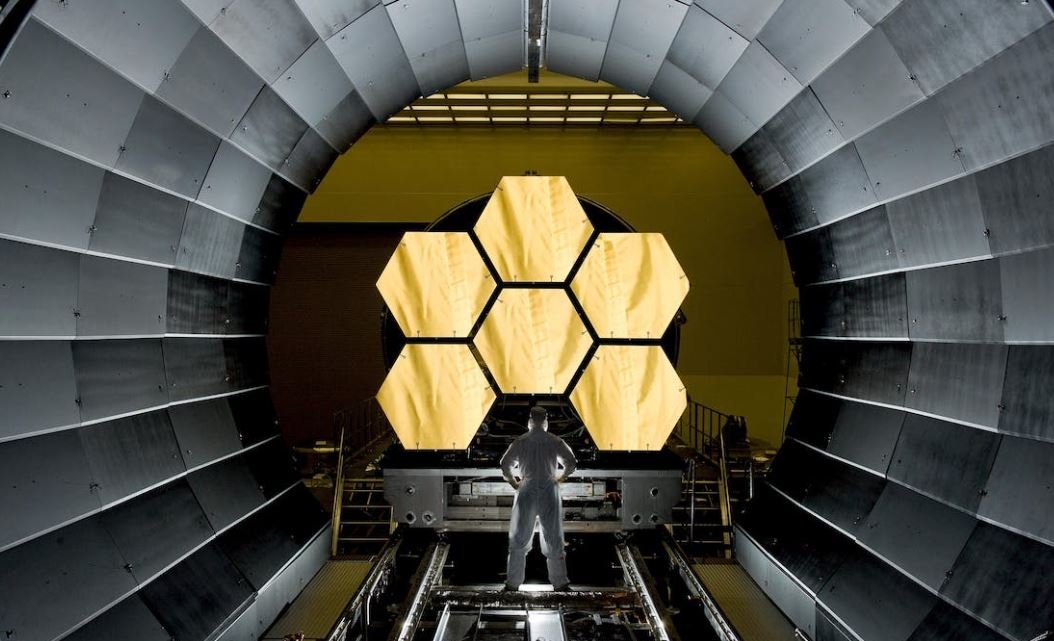How to AI Clone Your Voice
Artificial Intelligence (AI) has made significant advancements in recent years, allowing the creation of voice cloning technology. Voice cloning enables the replication of an individual’s unique voice using AI algorithms and deep learning models. This innovative technology has various applications, including voice-assistants, audiobook narration, and personalized voice assistants for people with speech disabilities. In this article, we will explore the process of AI voice cloning and how you can clone your own voice with the help of AI.
Key Takeaways:
- AI voice cloning technology uses algorithms and deep learning models to replicate an individual’s unique voice.
- Voice cloning has applications in voice-assistants, audiobook narration, and personalized voice assistants for speech disabilities.
- Cloning your own voice with AI requires recording a large dataset of your voice and training a deep learning model.
- Privacy concerns and ethical considerations should be taken into account when using voice cloning technology.
Understanding AI Voice Cloning
AI voice cloning is achieved by training a deep learning model on a large dataset of recordings of an individual’s voice. The model learns the patterns, nuances, and unique characteristics of the voice, allowing it to generate new speech that closely resembles the original voice. During the training process, the model extracts features from the audio recordings and maps them to a latent space, which is then used to generate synthesized voice samples. This process involves complex algorithms and neural networks, ensuring the accuracy and quality of the cloned voice.
*Voice cloning technology is revolutionizing the audio industry by providing personalized voice experiences.
The Process of AI Voice Cloning
Cloning your own voice with AI involves several steps:
- Record a large dataset: Gather a diverse collection of audio recordings consisting of phrases, sentences, and words spoken in your own voice. This dataset should cover a wide range of speech patterns, emotions, and tones.
- Data preprocessing: Clean and normalize the audio recordings to ensure consistent quality and remove any background noise or artifacts that may interfere with the training process.
- Train the model: Utilize deep learning techniques to train the voice cloning model on your preprocessed dataset. This includes feeding the audio samples into the model and adjusting the network parameters to optimize the voice replication process.
- Model evaluation: Evaluate the trained model’s performance by comparing the generated voice samples with the original recordings. Fine-tune and iterate on the model if necessary to improve the accuracy and naturalness of the cloned voice.
- Generate new voice samples: Once the model is trained and evaluated, you can generate new voice samples by providing text input to the model. The model will synthesize the speech based on the learned voice characteristics and produce audio files that resemble your own voice.
Voice Cloning Applications and Benefits
Voice cloning technology has numerous applications and benefits:
- Customized voice assistants: AI voice cloning enables the creation of personalized voice assistants, allowing individuals to interact with technology using their own voice.
- Audiobook narration: Voice cloning can be utilized to generate audio versions of books with the author’s voice, providing a unique and engaging listening experience.
- Speech disability support: People with speech disabilities can benefit from voice cloning technology by creating personalized voice assistants that accurately represent their speech patterns and vocal identity.
- Reduced voice-over production costs: Voice cloning can potentially reduce the need for human voice actors in various multimedia productions, saving time and resources.
Considerations and Ethical Concerns
When using AI voice cloning technology, it is important to consider the following:
- Privacy concerns: Collecting and storing voice data raise privacy issues, as voice recordings can potentially be misused or replicated without consent.
- Identity theft: AI voice cloning technology raises concerns about the misuse of cloned voices for malicious purposes, such as impersonation or fraud.
- Legal regulations: Ensure compliance with legal regulations regarding voice data collection, storage, and usage.
- Consent and transparency: Obtain informed consent from individuals whose voices are being cloned and provide clear information about the purpose and usage of the cloned voices.
| Technology | Benefits | Limitations |
|---|---|---|
| Neural Networks |
|
|
| Concatenative Synthesis |
|
|
Conclusion
AI voice cloning technology has revolutionized the audio industry, providing opportunities for personalized voice experiences and expanding accessibility for individuals with speech disabilities. By understanding the process of AI voice cloning, considering its applications, benefits, and ethical concerns, individuals can explore the possibilities of successfully cloning their own voice using the power of AI.

Common Misconceptions
Misconception 1: Cloning your voice with AI is illegal
One common misconception around using AI to clone your voice is that it is illegal. While there may be some ethical concerns regarding the misuse of AI-generated voice clones, it is not necessarily illegal. It is important to note that laws around AI and voice cloning vary from country to country, and regulations are still catching up with the rapid advancements in technology.
- AI voice cloning is not automatically illegal
- Laws and regulations differ across countries
- There are ethical concerns, but legality depends on jurisdiction
Misconception 2: AI voice clones are indistinguishable from the real voice
Another misconception is that AI-generated voice clones are perfect replicas and cannot be distinguished from the real voice. While AI technology has significantly improved the quality of voice clones, they are not yet flawless. Skilled individuals can still identify certain artifacts or subtle differences that indicate the voice is generated by AI.
- AI voice clones are not entirely indistinguishable from the real voice
- Expert listeners can identify artifacts or subtle differences
- Advancements in AI are constantly improving voice clone authenticity
Misconception 3: AI voice cloning is a simple process
There is a misconception that anyone can easily clone their voice using AI with just a few clicks. However, creating a high-quality voice clone typically requires the collection of a substantial amount of voice data and training the AI model with advanced techniques. It can be a complex process that requires expertise in AI and voice processing.
- Creating a quality voice clone is not a simple task
- Extensive voice data collection and advanced training techniques are needed
- Expertise in AI and voice processing is often required
Misconception 4: AI voice cloning has no legitimate uses
Some people mistakenly believe that AI voice cloning has no legitimate uses and is solely used for malicious activities. While there have been instances of voice cloning being misused for scams or impersonations, there are valid applications where AI voice cloning can be beneficial, such as in the entertainment industry for voiceovers or preserving the voices of people with speech disabilities.
- AI voice cloning can have legitimate and beneficial uses
- Entertainment industry can utilize voice clones for voiceovers
- Voice cloning can assist people with speech disabilities
Misconception 5: AI voice cloning eliminates the need for human voice actors
Contrary to popular belief, AI voice cloning does not eliminate the need for human voice actors. While AI-generated voices can mimic certain tones and styles, human voice actors bring emotions, nuances, and creativity that cannot be replicated by AI alone. The collaboration between technology and human talent often produces the best results in voice acting.
- AI voice cloning complements, but does not replace, human voice actors
- Human voice actors bring unique emotions, nuances, and creativity
- Collaboration between technology and human talent is beneficial in voice acting

AI voice cloning software has become increasingly popular in recent years. With the advancements in technology, there are now numerous options available for individuals to clone their voice. The table below showcases the number of AI voice cloning software currently on the market.
| AI Voice Cloning Software | Number of Options |
|————————-|——————|
| DeepMind WaveNet | 3 |
| Adobe Voco | 2 |
| Baidu Deep Voice | 4 |
| Lyrebird | 1 |
| Modulate | 1 |
| Resemble AI | 2 |
| CereProc | 1 |
| Replica Studios | 1 |
| Real Speaker | 3 |
| Voctro Labs | 1 |
AI Voice Cloning Software and Their Pricing
As the demand for AI voice cloning software grows, developers have introduced various pricing models. The table below presents different AI voice cloning software and their corresponding pricing plans.
| AI Voice Cloning Software | Pricing Plan |
|————————-|—————————————|
| DeepMind WaveNet | Free |
| Adobe Voco | Subscription: $19.99/month |
| Baidu Deep Voice | Pay-as-you-go: $0.01/45 characters |
| Lyrebird | Free for non-commercial use |
| Modulate | Subscription: $9.99/month |
| Resemble AI | Free: 1000 API requests/day |
| CereProc | Starting from $318 |
| Replica Studios | Subscription: $99/month |
| Real Speaker | Pay-as-you-go: $1.00/minute |
| Voctro Labs | Starting from €99.00/year |
Accuracy of AI Voice Cloning Software
Ensuring accurate voice cloning is crucial for the success of AI voice cloning software. The table below highlights the accuracy levels achieved by different AI voice cloning software.
| AI Voice Cloning Software | Accuracy Level |
|————————-|———————-|
| DeepMind WaveNet | High |
| Adobe Voco | Moderate |
| Baidu Deep Voice | Moderate to High |
| Lyrebird | High |
| Modulate | Low to Moderate |
| Resemble AI | Moderate |
| CereProc | High |
| Replica Studios | Moderate to High |
| Real Speaker | Moderate to High |
| Voctro Labs | High |
Ethical Concerns Raised by AI Voice Cloning
As AI voice cloning becomes more accessible, ethical concerns arise regarding its implications. The table below highlights the main ethical concerns associated with AI voice cloning.
| Ethical Concerns | Description |
|——————————-|—————————————————————————–|
| Misuse of voice recordings | Potential for fraudulent activities using cloned voices |
| Invasion of privacy | Unauthorized use of someone’s voice for personal or commercial purposes |
| Impersonation of individuals | Cloned voices being used to impersonate others, leading to identity theft |
| Manipulation of audio content | Creation of misleading or false information through manipulated voices |
| Voice phishing threats | Increased risk of voice phishing attacks targeting individuals or companies |
Applications of AI Voice Cloning
AI voice cloning technology has a wide range of applications across various industries. The table below showcases some of the key applications of AI voice cloning.
| Application | Industry |
|———————-|—————————|
| Vocal coaching | Entertainment |
| Audiobook narration | Publishing |
| Language learning | Education |
| Virtual assistants | Technology |
| Call center automation | Customer service |
| Voiceover work | Film and television |
| Accessibility | Assistive technology |
| Voice branding | Marketing and advertising |
User Satisfaction of AI Voice Cloning Software
To evaluate the satisfaction of users, surveys were conducted to gather feedback on their experiences with different AI voice cloning software. The table below highlights the user satisfaction ratings.
| AI Voice Cloning Software | User Satisfaction Rating (out of 5) |
|————————-|————————————-|
| DeepMind WaveNet | 4.7 |
| Adobe Voco | 4.2 |
| Baidu Deep Voice | 3.9 |
| Lyrebird | 4.9 |
| Modulate | 3.6 |
| Resemble AI | 4.4 |
| CereProc | 4.3 |
| Replica Studios | 4.1 |
| Real Speaker | 3.8 |
| Voctro Labs | 4.6 |
Usage Limitations of AI Voice Cloning
While AI voice cloning software offers remarkable capabilities, certain limitations exist. The table below outlines the usage limitations associated with AI voice cloning.
| Limitation | Description |
|——————————-|—————————————————————————–|
| Voice quality variation | Cloned voices may not perfectly replicate the original voice |
| Limited language availability | Some AI voice cloning software supports a limited number of languages |
| Processing time | Generating high-quality voice clones can be time-consuming |
| Training data requirements | Adequate training data is needed for accurate voice cloning |
| Compatibility | Not all AI voice cloning software is compatible with every device or platform |
In conclusion, AI voice cloning software has revolutionized the way we interact with voice-based applications and opened up new possibilities in various industries. With a variety of options available, users can choose based on their specific needs and preferences. However, ethical concerns, such as privacy and misuse of voice recordings, must be carefully addressed. Despite certain limitations, AI voice cloning technology continues to improve, offering high accuracy and user satisfaction. As the field progresses, we can expect even more advancements, making AI voice cloning an integral part of our daily lives.
Frequently Asked Questions
How to AI Clone Your Voice
Q: What is AI voice cloning?
A: AI voice cloning is a technology that uses artificial intelligence to replicate and imitate a person’s unique vocal characteristics and speech patterns. This enables users to generate computer-generated voices that sound like a particular individual.
Q: How does AI voice cloning work?
A: AI voice cloning typically involves a two-step process. First, an extensive amount of training data is required, including recordings of the person’s voice and corresponding text transcripts. This data is then used to train a deep learning model, such as a neural network, which learns the patterns and nuances of the person’s voice. The trained model can then generate new voice samples based on input text.
Q: What are the applications of AI voice cloning?
A: AI voice cloning has various applications, including voice-over for animations and movies, virtual assistants, audiobook narration, personalized voice-overs for digital content, and accessibility for individuals with speech impairments.
Q: Is AI voice cloning legal?
A: The legality of AI voice cloning varies depending on local jurisdictions. In some places, explicit consent from the person being cloned may be required. It’s essential to research and adhere to the applicable laws and regulations regarding voice cloning in your specific location.
Q: Can AI voice cloning be used for malicious purposes?
A: While AI voice cloning technology has numerous beneficial uses, it can also be potentially misused for malicious activities like impersonation, identity theft, or spreading misinformation. It is crucial to handle and use AI voice cloning responsibly and ethically.
Q: What are the limitations of AI voice cloning?
A: AI voice cloning still has some limitations. It may struggle with replicating emotional nuances and variations in speech. Additionally, the quality of the generated voice can vary, and it may not be indistinguishable from a real human voice in all instances.
Q: Are there any ethical concerns with AI voice cloning?
A: Yes, there are ethical concerns associated with AI voice cloning. These include potential misuse for fraud or deception, invasion of privacy, and consent issues if using someone’s voice without permission. It is important to consider and address these ethical considerations when working with AI voice cloning technology.
Q: What are some popular AI voice cloning tools or platforms available?
A: There are several AI voice cloning tools and platforms available, including Lyrebird, Replica Studios, and Resemble AI. These platforms provide developers and users with the ability to create custom AI-generated voices for various applications.
Q: How can I get started with AI voice cloning?
A: To get started with AI voice cloning, you will need to research and select an AI voice cloning tool or platform that suits your needs. Some platforms offer APIs and developer documentation for integration into your applications. It is recommended to review tutorials and documentation provided by the chosen platform to understand the process and requirements.
Q: Can AI voice cloning improve over time?
A: Yes, AI voice cloning can improve over time as more data is collected and the underlying models are continuously updated and refined. With advances in artificial intelligence and machine learning algorithms, future versions of AI voice cloning technology may provide even more accurate and natural-sounding voice replication.




